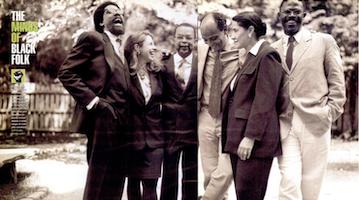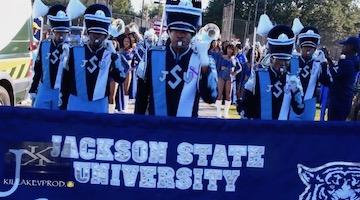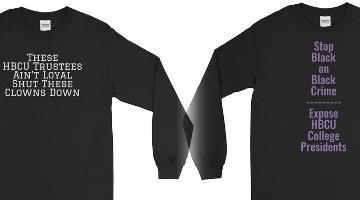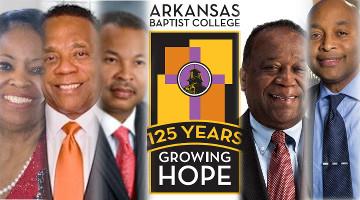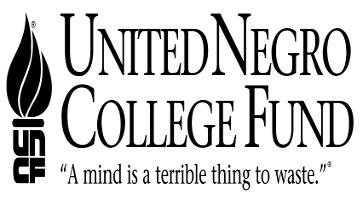In this series, we ask acclaimed authors to answer five questions about their book. This week’s featured author is Brian Jones. Jones is Director of The New York Public Library’s Center for Educators and Schools. His book is The Tuskegee Student Uprising: A History.
Roberto Sirvent: How can your book help BAR readers understand the current political and social climate?
Brian Jones: In its first 80 years of existence, Tuskegee Institute, like many schools for Black people, was subjected to the kind of extreme curricular censorship that we’re seeing across the United States in the twenty-first century. This impulse to ban Black history has always been about a fear of genuine democracy in this country. After the Civil War, Black people sought education as a means of liberation and political power, but when Reconstruction was overthrown, the dominant, elite-led paradigm for Black schools became education for socialization, to teach Black people to stay in their place. Tuskegee Institute attracted funding from northern industrialists and from the State of Alabama because they hoped Booker T. Washington’s adopted model of “industrial” education could reconcile Black people to the undemocratic post-Reconstruction social order in the South.
My book shows Black students at Tuskegee Institute resisting that paradigm, and breaking out of those curricular constraints. Today’s banned books and censored curricula are nothing new, and Black students have always defied those limitations. The first recorded student strike at Tuskegee wasn’t in the 1960s but in the 1890s. They struck in 1896 over not being given enough to eat. Students struck again in 1903 in a challenge to Tuskegee’s curriculum, complaining that their daily work schedules didn’t allow enough time for study. In the 1960s, Tuskegee student activists fought for democracy in the Black Belt region of Alabama, and returned to their classrooms convinced that those, too, were spaces in need of transformation. Tuskegee student activists actually won sweeping reforms on campus in those years, including full scholarships for student athletes, student representation on administrative committees, student control of the campus newspaper, and the establishment of an African Studies Program.
The Tuskegee student movement reminds us that, even in places that seem unlikely centers of such resistance, Black students have a rich history of pushing back against educational paradigms that limit their personal and/or political horizons. This history offers some perspective in the context of the hysteria over the bogeyman of “Critical Race Theory” and attempts to censor curricula and library collections.
What do you hope activists and community organizers will take away from reading your book?
I hope the story of the Tuskegee student uprising helps activists and organizers see the longer pattern of the centrality of school to Black social movement history. It’s quite remarkable how, one way or another, school shows up in every history of Black social movements. Either the school is the organizing center from which a movement emerges to take on some larger social issue, or the school is itself the object of the struggle, or both in some combination. Tuskegee Institute, despite its conversative reputation, is no different.
In the story of the Tuskegee student movement, organizers can see the political and educational dimensions of social struggles. The political awakening was also an intellectual awakening, and Tuskegee student activists engaged in intensive learning activities outside of the classroom – reading, discussing, and debating. Suddenly they were learning more outside of their classes than inside them. And all of this took place, of course, at one of the nation’s most important historically black colleges, where the student movement emerged in the shadow of the school’s founder, Booker T. Washington.
It's useful for organizers to remember that sometimes the places where activism emerges can surprise us. Despite Tuskegee Institute’s conservative reputation, it was, in the late 1960s, widely recognized as one of the most important sites of the Black Power movement. When Kwame Ture (née Stokely Carmichael) and Charles Hamilton sat down to write a definitive book on the Black Power movement, they devoted an entire chapter to Tuskegee, and with good reason – it was the site of the one of the most dynamic and influential student movements in the nation at the time.
We know readers will learn a lot from your book, but what do you hope readers will un-learn? In other words, is there a particular ideology you’re hoping to dismantle?
The “we were all more united back then” nostalgia is powerful, but it can also be disarming for activists today trying to figure out why unity feels so difficult to achieve. The Tuskegee student movement reached its most explosive expression in the 1968, when students took the board of trustees physically hostage until the Alabama National Guard arrived to quell the protest. The administration decided to close the school entirely, dismissing the entire student body. Looking back more than fifty years later, all of the Tuskegee student activists that I interviewed expressed a deep sense of gratitude and loyalty towards the institution. The Tuskegee student movement was, even at its most critical moments, not about tearing the institution down, but about building it up. My book represents a bottom-up history of Tuskegee Institute, not a “great man” history, and the tensions and debates and disagreements that people navigated on Tuskegee’s campus were at times intense. They have remained largely unrecognized in popular consciousness, but, for daring to speak out and push back, Tuskegee student activists actually succeeded over many decades in making their school a better place.
My book also cuts against the grain of current scholarship on Booker T. Washington, which is more or less vindicationist. Most contemporary scholars see Washington as a far-sighted practitioner of Black people’s very necessary art of “wearing the mask.” Washington was born into slavery in Virginia, while his most well-known challenger W.E.B. DuBois, his defenders point out, graduated from Harvard, and critiqued Washington from the relative safety of Massachusetts.
But the Tuskegee student movement, beginning in the late 19th century (while Washington was the school’s director), represents a new vantage point from which to consider this debate. Unlike DuBois, Tuskegee students, especially in the school’s early years, were raised in the South. The historical record of their protests, petitions, and strikes suggests that debate about Washington’s political-educational paradigm emerged within the Tuskegee community, not just without it. And whatever Washington’s defenders highlight about the constraints of his circumstance – the very real threats of white supremacist violence, for instance – the students on the campus he founded, unlike DuBois, shared that circumstance and yet came to different conclusions from Washington about what their schooling could or should be. The history of the Tuskegee student movement represents, in other words, a new and compelling perspective on a very intense and longstanding debate among Black people about how to pursue their political-educational interests in the context of white supremacist un-democracy in this country.
Which intellectuals and/or intellectual movements most inspire your work?
I’m deeply influenced by teachers such as Jean Ayon, Ruth Wilson Gilmore, James Anderson, Bettina Love, and others, who think and write about both the opportunities within and limitations of institutions of formal learning. Formal schooling can be such a constrained and problematic process, but like any other sustained gathering of young people, schools are also pregnant with radical possibilities. I think we do well to acknowledge both dimensions, and we flatten or diminish either at our peril.
The life and work of Howard Zinn is also a huge influence on me. I am deeply committed to the importance of researching and writing history “from below” or “people’s histories.” I admire Zinn as a model of committed scholar-activism, and was pleased but not at all surprised to see his name pop up in the archives as I conducted research on the Tuskegee student movement.
As a former elementary school teacher and former teacher union activist, I remain deeply influenced by my colleagues who insisted that our working conditions were also students’ learning conditions. I am inspired by teacher union activists in New York City, and by people like Karen Lewis (former leader of the Chicago Teachers Union), who dared to change the game of teacher union leadership, speak out boldly against racism and inequality, and thereby create a whole new paradigm for social justice activism in one of the nation’s most important workplaces.
Which two books published in the last five years would you recommend to BAR readers? How do you envision engaging these titles in your future work?
I think that the people who take the ideas of prison abolition seriously are making the most practical and intellectual contributions to the project of human freedom in the United States at the moment. Agree, disagree, or don’t know yet, their ideas and work should be on your radar.
I would recommend starting with the very accessible book of essays, We Do This ‘Til We Free Us: Abolitionist Organizing and Transforming Freedom (2021) by Mariame Kaba. Bettina Love’s We Want to Do More Than Survive: Abolitionist Teaching and the Pursuit of Educational Freedom (2019) represents a compelling case for what it means for educators to learn from the 19th century abolitionist movement and apply some of its lesson in our contemporary school system.
In 1935, W.E.B. DuBois published Black Reconstruction: An Essay Toward a History of the Part which Black Folk Played in the Attempt to Reconstruct Democracy in America, 1860–1880, but a new edition just came out in 2021, with an introduction written by Eric Foner and Henry Louis Gates, Jr., so I’m sneaking this one onto my list. It is a dense book, but worth the effort, particularly as it recounts a period of radical experimentation and biracial democracy in the South that is so often overlooked, and is more relevant every day. It’s a book that can be read out of order, and one of my favorite chapters is 15: Founding the Public School.
Roberto Sirvent is editor of the Black Agenda Report Book Forum.

